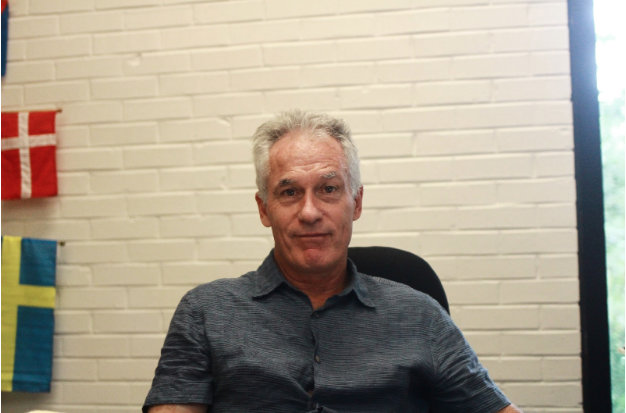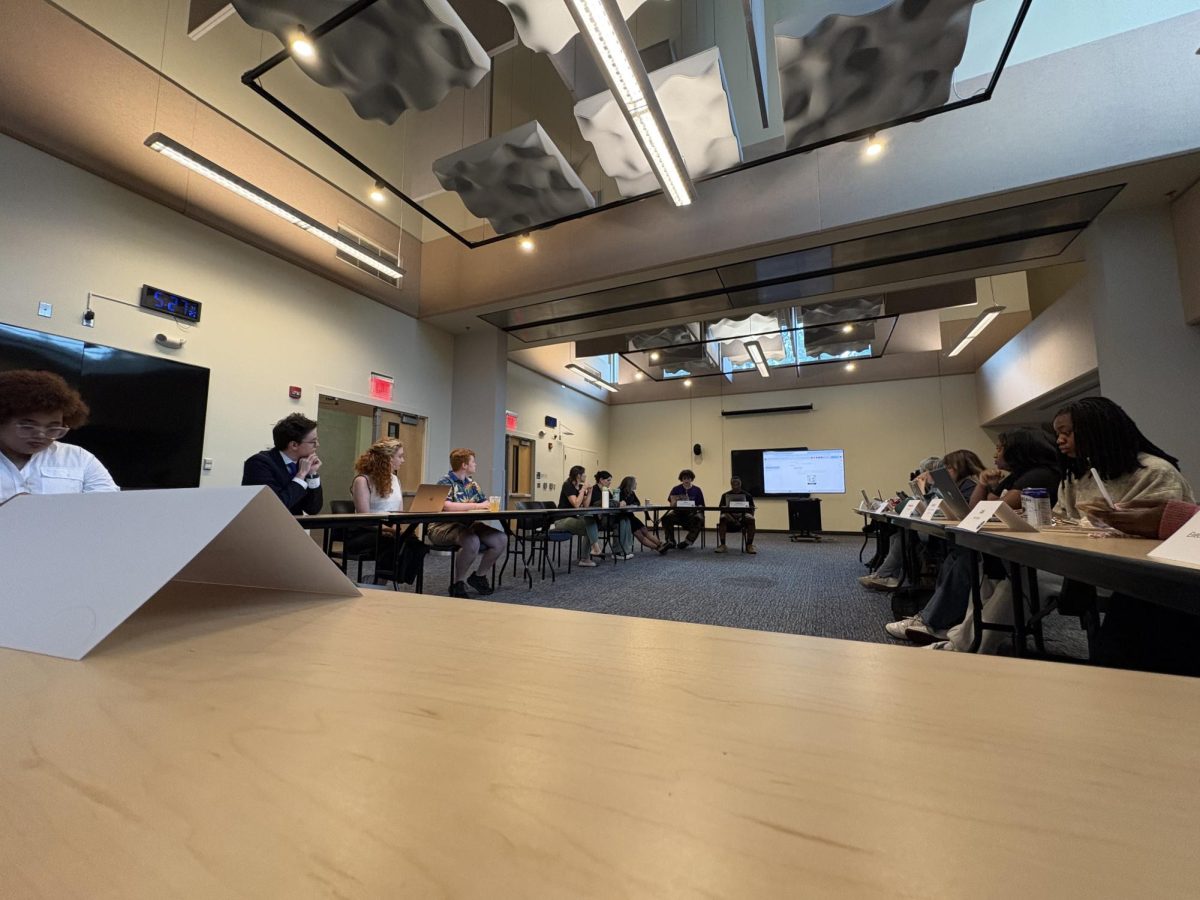By Larisa Karr
Managing Editor
[email protected]
Chae Chan Ping sailed across the sea and prepared to return to his adopted homeland, or so he thought.
In 1882, the United States government passed the Chinese Exclusion Act, which prohibited Chinese laborers from entering the country for 10 years.

This prevented Chan Ping from living in the U.S. again, even after his case had gone to court.
Mark Gibney, professor of political science at UNC Asheville, teaches a class on immigration and refugee law, with Chae Chan Ping v. United States being the first case addressed in the class.
He said the way the U.S. treated Chan Ping epitomizes the country’s ethos toward immigrants and refugees since its inception.
“Refugees have never been popular,” Gibney said. “In the public mind at least, I think there’s a fear of refugees. I don’t know if it’s a fear that the conflict that they’re leaving will somehow find its way to the United States.”
According to the U.S. Department of State, the government admitted 50,479 refugees into the country last year. The highest percentage of individuals come from the Democratic Republic of the Congo, which is the deadliest country in the world, Gibney said. Iraq, Syria and Somalia also have relatively high percentages compared to others.
The demographic makeup of refugees in North Carolina parallels that of the country as a whole, with 28 percent coming from the Democratic Republic of the Congo, 13.19 percent from Syria and 10.15 percent from Somalia.
To be a refugee, Gibney said, means one has to have a well-established fear of persecution on account of five reasons: race, religion, nationality, membership in a particular social group or political opinion. There are other categories of refugee status the U.S. does not recognize.
“The United States has not been willing to recognize economic or environmental refugees,” Gibney said. “They’re saying they’re not real refugees.”
Scott Phillips, director of the Raleigh office for the U.S. Committee for Refugees and Immigrants, said the agency wished to resettle 375 out of North Carolina’s 3,300 refugees admitted this year.
“As of the beginning of September, we resettled 245 individuals,” Phillips said. “There’s 245 people that are no longer in a camp but we also think about the 130 people that were not resettled this year.”
The USCRI helps to introduce new arrivals to the U.S. with fully-furnished housing, educational and occupational opportunities.
Phillips has lived throughout the world doing work with refugees in Ukraine, Jordan and the United Kingdom. He said the anti-refugee sentiment in the latter country was representative of a small minority of the population, as people were generally willing to help refugees to their new country.
“Most people, once they get their basic facts right are like, ‘Well, why wouldn’t we support? Why wouldn’t we be welcoming?’” Phillips said.
The friendliness and conviction to help those from difficult situations is why he chose to relocate to the Tar Heel state.
“When I was back here in the U.S., I saw this job pop up and being a native North Carolinian and caring a lot about this issue, I felt like it would be a good step for me to apply knowledge and skills to work for people coming to make a home in North Carolina,” Phillips said.
Shoshana Fried, an immigration attorney at Pisgah Legal Services in Asheville, helps immigrants with the paperwork necessary to begin to establish residency in the U.S.
She said there has been a positive reception overall to new immigrant arrivals in the city, even in light of recent legislation aimed at curtailing the number of people coming to the U.S.
“We get calls all the time from community organizations and churches that want to help and want to know how they can help, and really the challenge is finding ways to engage the community because there’s so many people that want to help,” Fried said. “I think that Asheville is a welcoming town.”
Asheville is not particularly known for being a refugee resettlement hub. This is because, Phillips said, housing is costly and employment is seasonal.
He said there are other more optimal areas in the state for refugees to resettle which have steady jobs and a low cost of living.
“We’re generally one of the top states as far as numbers of arrivals go,” Phillips said. “Charlotte and the Triangle are very diverse, which means that they’re generally welcoming. We are fortunate that we have a lot of urban hubs that we can resettle in.”
Asheville’s refugee population consists of individuals primarily from eastern Europe, specifically Ukraine and Russia. This particular demographic focus may be a result of a specific policy the U.S. had toward people from this area of the world.
“It was written into law actually, until 1980, only people from communist countries or from the Middle East were refugees and no one came from the Middle East in those times, so it was essentially, by law, only people from communist countries,” Gibney said. “That was a way of showing a superiority of the American way of life as opposed to the Soviet.”
As a result, the U.S. was turning down asylum seekers from Central American countries plagued by brutal civil wars, including El Salvador and Honduras, Gibney said.
Even today, the majority of people who set foot in Fried’s office come from either Honduras, El Salvador or Guatemala.
“The stories that I hear from all three of those countries are just horrendous at how young they’re starting to recruit kids for the gangs and the methods that they go about doing that and the sexual violence,” Fried said.
Many refugees and immigrants throughout the state internalized yet more fear as a result of President Trump’s recent attempts to crack down on immigration.
“Back after the election, we did an analysis of our intakes in February and March and we were receiving 250 percent more calls for service than we had at the same time the year before,” Fried said.
This is due, Fried said, to the administration’s policies being unclear.
“With almost all of my clients, there’s that added layer of being afraid of ICE and getting deported and also that fear of just having to hide in the shadows a little bit and not knowing what tomorrow, next week, next month will look like,” Fried said.
For Phillips, it remains crucial that one does not merely reduce human beings to simple statistics.
“When we’re doing this job and when we’re doing federal government policy jobs, you tend to have to rely on numbers,” Phillips said. “We’re not talking about numbers. We’re talking about human beings and they’re looking for safe freedoms for their family.”


















